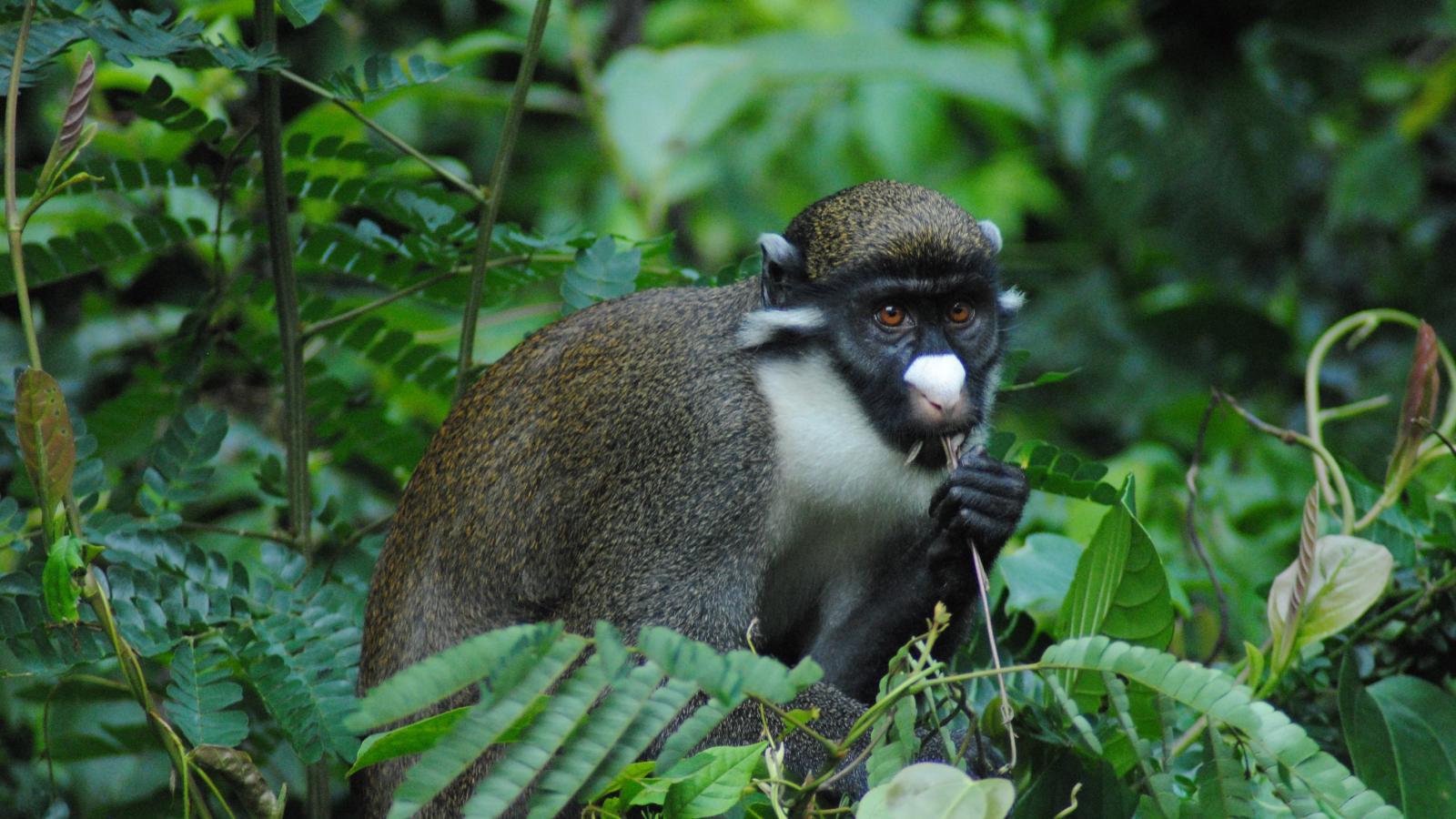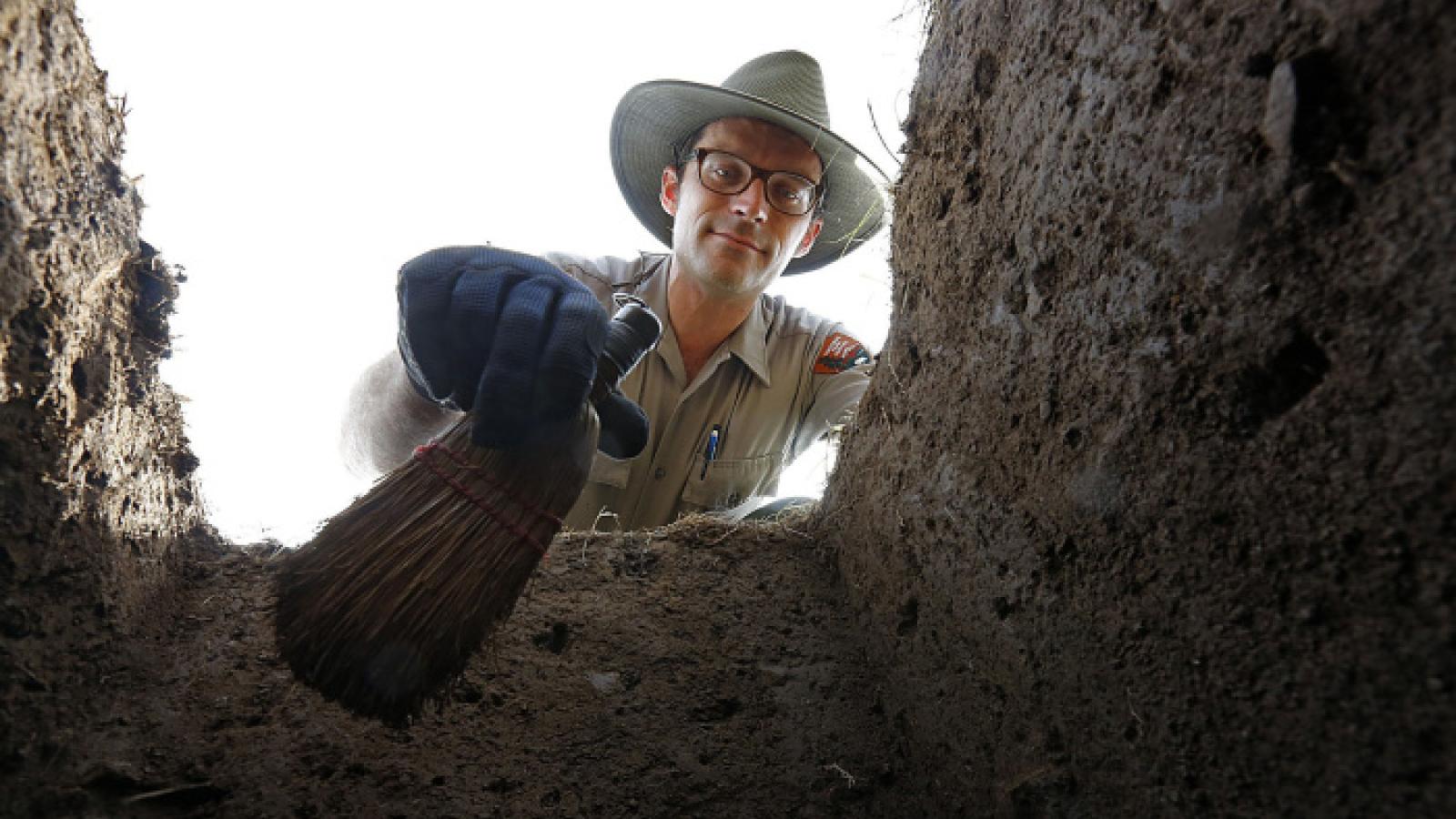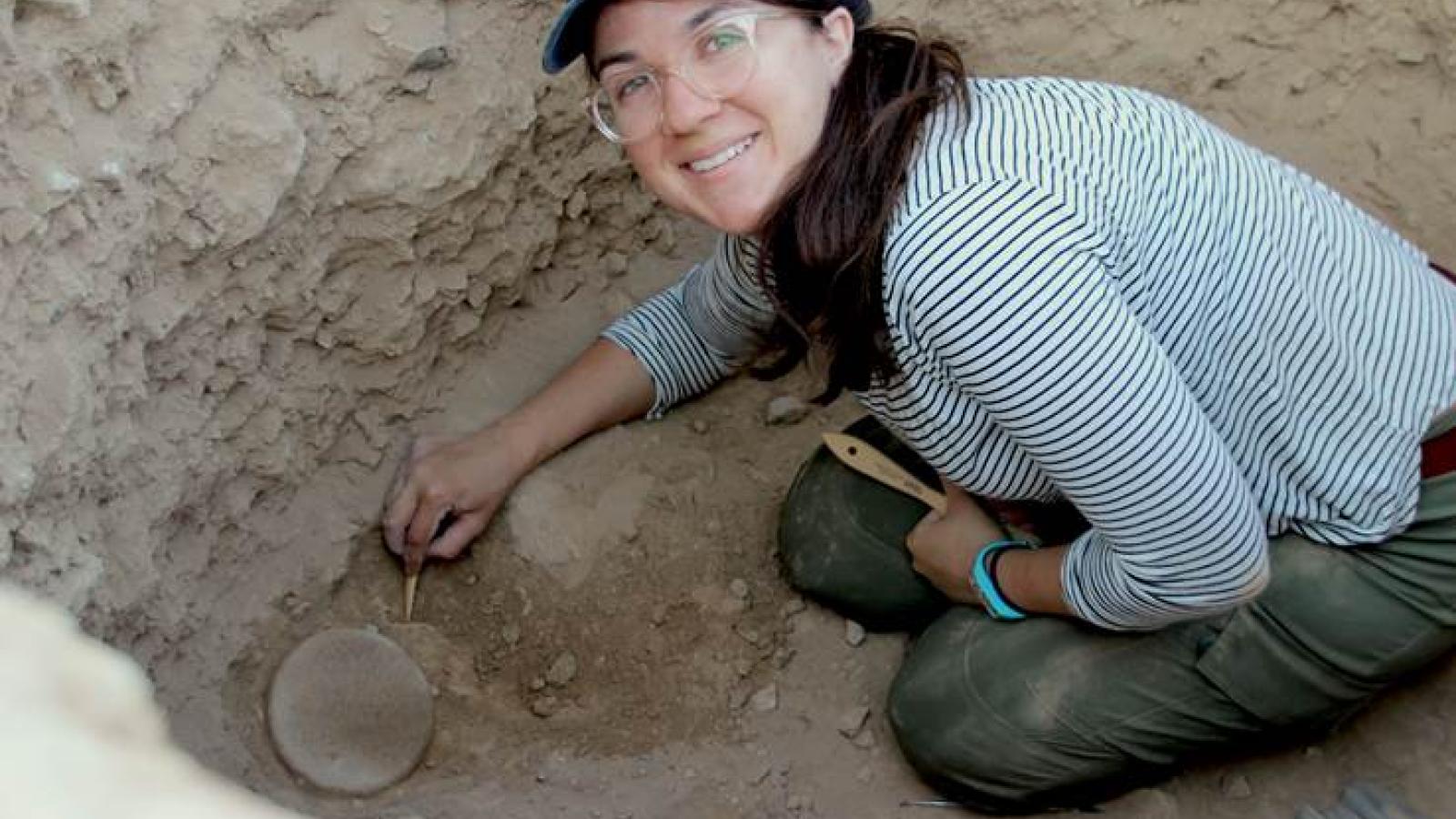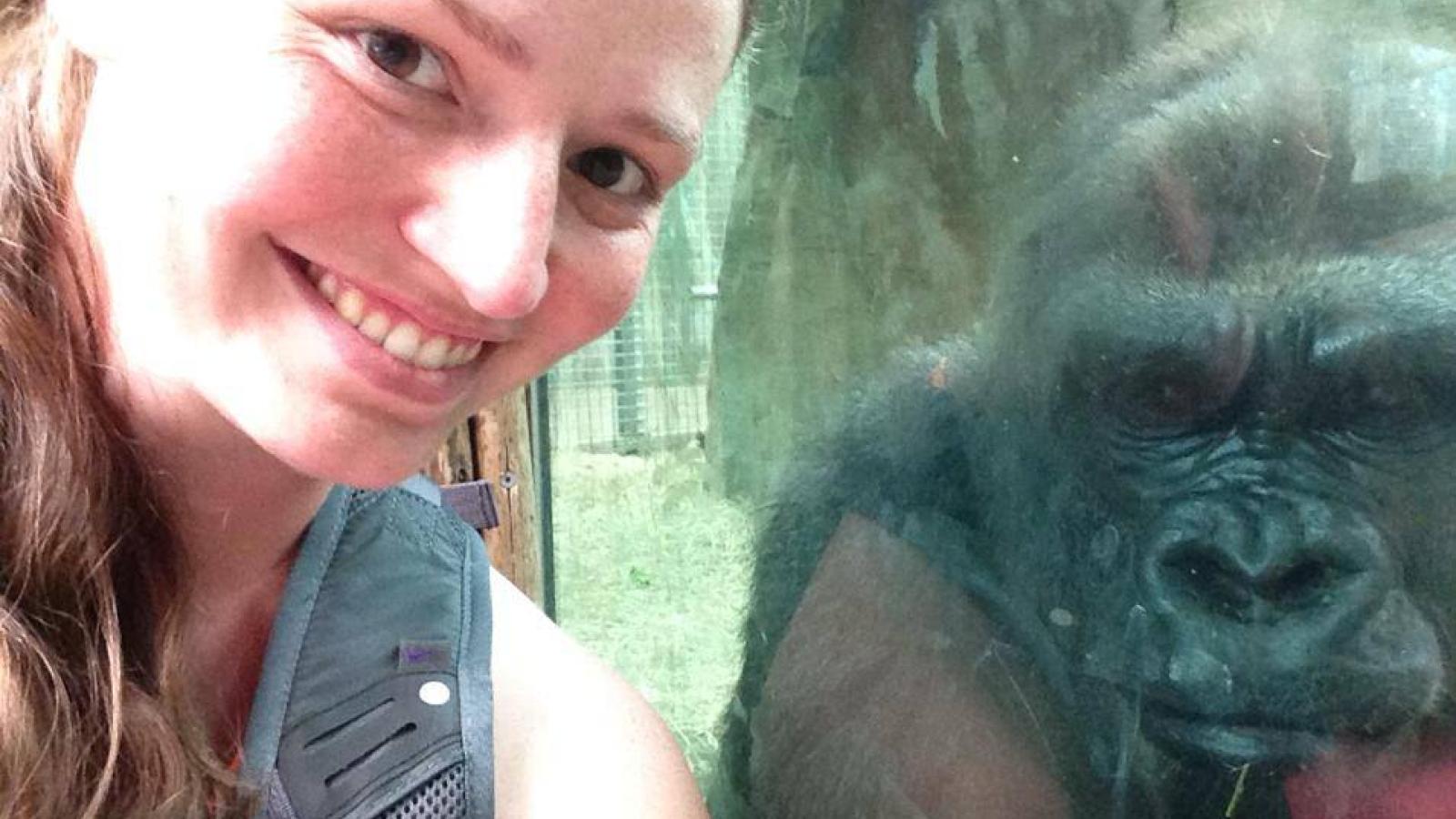Anthropological Research by Graduate Students at OSU
Graduate students within the Department of Anthropology are a group of committed scholars who are focused on their future disciplinary education and training.
To that end, our students develop research programs that will serve as the foundation for their own productive careers beyond the Ph.D.
Like the faculty, these programs reflect the department's emphasis on ecology, evolution, foodways, migration and change, and health in the three subdisciplines, physical anthropology, archaeology, and cultural anthropology.
The success of our graduate students can be readily measured through their steady matriculation through the graduate program (average 5.8 years), attainment of major external funding, publication in peer-reviewed journals, and placement in the job market (71% employed in academic settings).
Research Productivity
Over the past decade our graduate students have been very successful at obtaining large external grants to fund their PhD dissertation research.
The majority of these grants are from the National Science Foundation, but many as well from the Wenner-Gren Foundation for Anthropological Research, and other foundations dedicated to anthropology and primatology.
The following grants have been awarded to support PhD research over the past decade:
- 2024 Sydney Hunter National Science Foundation Doctoral Dissertation Research Grant
- 2024 Kaita Gurian National Science Foundation Doctoral Dissertation Research Grant
- 2023 Tessa Cannon Next Generation Innovator of the Year Finalist, The Ohio State University
- 2023 Tessa Cannon Graduate Career Accelerator Fund, The Ohio State University
- 2023 Tessa Cannon Keith B Keys Buckeye Social Entrepreneurship Program Accelerator, The Ohio State University
- 2002 Sydney Hunter National Science Foundation, Graduate Research Fellowship
- 2022 Chelsea Hunter (co-PI Mark Moritz) Doctoral Dissertation Research: Co-managing sovereignty: The role of ontological commitments in collaborative conservation projects (National Science Foundation BCS-2147716).
- 2022 Tessa Cannon President’s Buckeye Accelerator Grant, The Ohio State University
- 2022 Tessa Cannon Trainee Enrichment Award, Infectious Disease Institute, The Ohio State University
- 2021 Tessa Cannon Trainee Transformative Grant, Infectious Disease Institute, The Ohio State University
- 2021 Tessa Cannon President’s Research Excellence Grant, The Ohio State University
- 2016 Abigail Buffington (co-PI Joy McCorriston). Becoming Food Producers: A Phytolith Analysis of Niche Construction by Forager Herders in Neolithic Southwest Arabia. National Science Foundation.
- 2016 Kelly Yotebieng (co-PI Jennifer Syvertsen). Research Experience for Graduates: The City from the perspectives of urban refugees in Yaoundé, Cameroon. National Science Foundation.
- 2015 Elizabeth Gardiner US Borlaug Fellowship in Global Food Security (United States Agency for International Development).
- 2015 Aaron Comstock (co-PI Robert Cook). Doctoral Dissertation Improvement Grant: Long Term Processes Of Cultural Interaction and Change. National Science Foundation Grant #: 1545138
- 2015 Genevieve Ritchie-Ewing (co-PI Barbara Piperata). Doctoral Dissertation Research: Societal expectations of motherhood and maternal stress during pregnancy. National Science Foundation Award # 1528292.
- 2015 Selin Nugent (co-PI Clark Larsen). Mobile Pastoralism and Power in Early Urban Centers of the Serur Valley, Azerbaijan. Wenner-Gren Foundation.
- 2015 Selin Nugent (co-PI Clark Larsen). Doctoral Dissertation: Urbanization in Motion: Mobile Pastoralism and Authority in the Serur Valley, Azerbaijan. National Science Foundation.
- 2015 Ashley Edes. Assessing Long-Term Stress in Great Apes. Conservation & Research Grant, Columbus Zoo & Aquarium
- 2014 Noah Dunham. Doctoral Dissertation Research: Feeding ecology of black and white colobus monkeys from south coastal Kenya: the influence of spatial availability, nutritional composition, and mechanical properties of food items. Fulbright-Hays Doctoral Dissertation Research Abroad Fellowship.
- 2014 Noah Dunham. Doctoral Dissertation Research: Feeding ecology of black and white colobus monkeys from south coastal Kenya: the influence of spatial availability, nutritional composition, and mechanical properties of food items. National Geographic Society.
Over this same time period, graduate students published numerous research articles in peer-reviewed journals. These include the following journals:
- Anthropological Quarterly
- Migration Letters
- Southeastern Archaeology
- American Antiquity
- Midcontinental Journal of Archaeology
- International Journal of Primatology
- Collegium Anthropologicum
- American Journal of Physical Anthropology
- Journal of Archaeological Science
- Rapa Nui Journal
- International Journal of Osteoarchaeology
- Dental Anthropology
- Journal of Forensic Sciences
- Anatomical Records
- American Journal of Primatology
- Journal of World Prehistory
- Vegetation History and Archaeobotany
- American Society of Primatology
- Planta Medica
- Human Ecology
- Cross-cultural Research
- Journal of Development Studies
- Social Science and Medicine
- Antiquity




